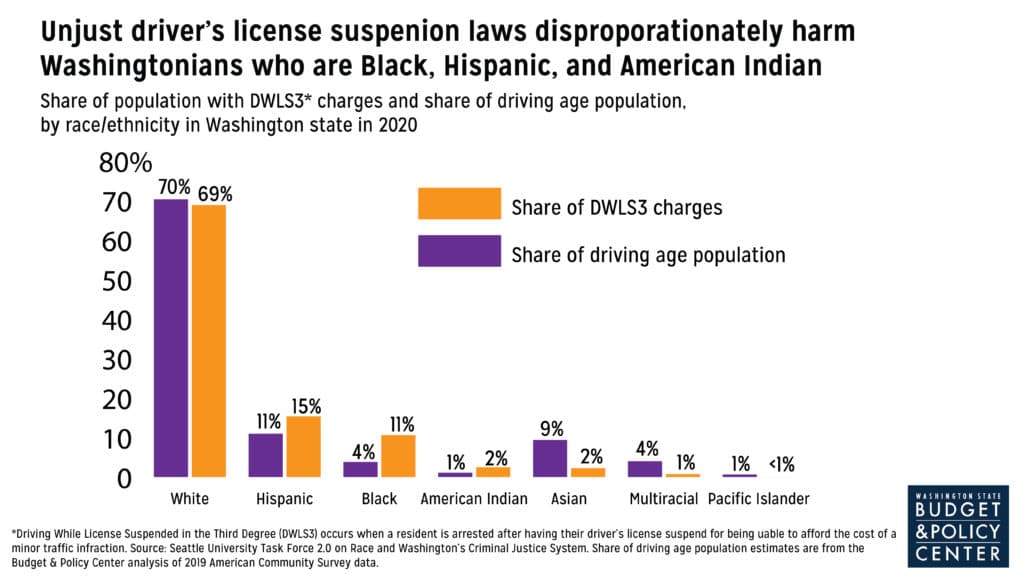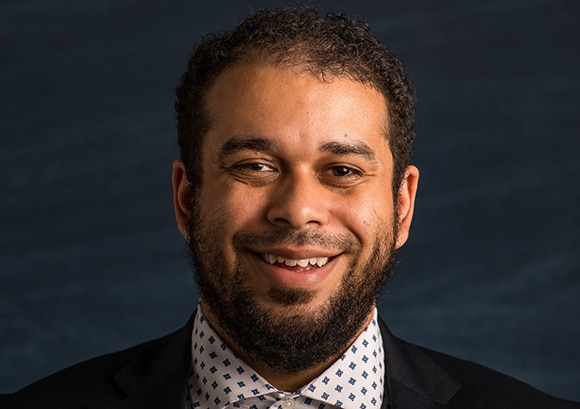This blog post is the third in a series on debt-based driver’s license suspensions.
Every year, thousands of Washingtonians who cannot pay a minor traffic citation for a moving violation are adversely impacted by Washington state’s unjust debt-based driver’s license suspension laws. The “Driving While License Suspended – Third Degree,” or DWLS3, law endangers public safety and needlessly entraps struggling Washingtonians in an endless cycle of debt and economic hardship. And it’s Black, Indigenous, and people of color (BIPOC) who are disproportionately charged and fined at higher rates in these cases compared to whites in the state.
The inherently racist and classist nature of the criminal legal system amplifies the damaging effects of our debt-based driver’s license suspension laws. Under Washington state’s current laws:
- Racial and ethnic minority groups are cited more often for traffic citations and are charged with more serious offenses.
- Black, Indigenous, and Hispanic/Latinx groups are over-represented as defendants that owe fines and fees, with Hispanic/Latinx defendants receiving the highest financial penalties compared to white defendants receiving the same charge.[1]
- DWLS3 is the most charged crime in Washington and has an outsized impact on many Washingtonians of color, especially Black, Hispanic, and American Indians (see chart below). Black Washingtonians are especially targeted and harmed by these policies: while they are just 4% of the driving age population, they represent 11% of defendants in DWLS3 cases. These racial disparities in traffic citations bring more detrimental consequences to BIPOC, particularly for those who cannot afford to pay for a traffic citation or additional fines and fees.
Click to enlarge image
Legislators can start to rectify Washington’s fines and fees system with SB 5226
While much needs to be done to address the many injustices that BIPOC communities in Washington state face on a daily basis, legislators can help chart a better course by enacting Senate Bill 5226, which would end debt-based driver’s license suspensions. SB 5226 takes steps towards decriminalizing minor traffic violations and provides immediate economic and legal gains to Washingtonians.
However, the debt collection industry, which profits from exorbitant interest rates and fees applied to late payments on traffic citations, is pulling out all the stops to dramatically weaken the measure and maintain the unjust status quo. Lawmakers should reject those efforts and work quickly to enact SB 5226 in the form that was approved by Senate Committee on Law & Justice in February 2021. Doing so would move Washington state closer to racial justice.

